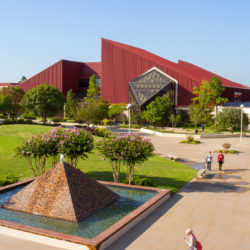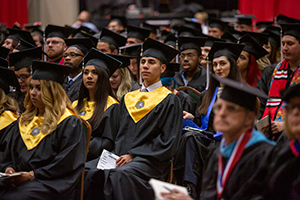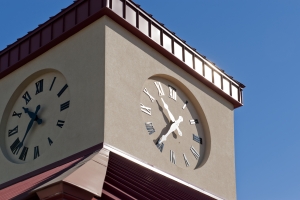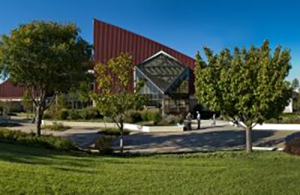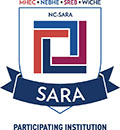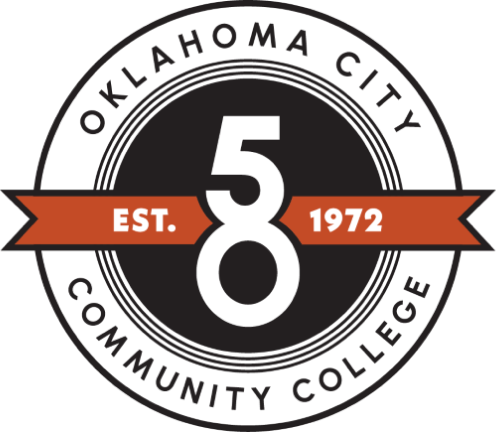Student Accessibility and Support Possible Accommodations
Student Accessibility and Support
Counseling Services: Call (405) 682-7520 for appointments
7777 South May Avenue
Oklahoma City, OK 73159
Possible Accommodations
Notetaking Services
Students approved for this accommodation will provide you with the accommodation form indicating its appropriateness and then the student will either make the request of a fellow student or ask for your assistance. If asked to assist, you should announce to the class that a notetaker is needed for this particular class and that activity would qualify the student for credit on an OCCC activity transcript. The volunteer will receive specialized paper from the Disability office. Please, Do not identify the student needing the services. The volunteer should be asked to meet with you after class. A) the student w/the disability may meet w/you and the notetaker after class or b) you can direct the volunteer to the SSS office.
(Deaf students needing notetaking services will be an exception to this procedure- arrange with the interpreter.)
Extended Time on Exams and Quizzes
The student who is eligible for extended time for testing purposes has provided documentation about the impact of the disability on this activity. Extended time is appropriate to assure equal opportunity to show content mastery by providing time that is necessary to compensate for the disability.
A study was conducted at the University of California, Berkeley* which has since been replicated a number of times with comparable results. Students with and without certain disabilities were tested on a timed test and given extended time. The study showed that for students w/disabilities, the extended time made a significant difference in performance. For the students w/out disabilities, the added time did not make a significant difference in performance. No matter how logical it seems to say "everyone would do better if they had extra time", there is documented evidence to show this is not the case.
*M. Kay Runyan (February, 1991), Journal of Learning Disabilities, Vol. 24(2), pp.104-108.
Alster, E.H. (1997), Journal of Learning Disabilities, Vol. 30, pp222-227.
If a student is approved for extended time, the extension should be given for tests and in-class work only. This does not apply to work that is done outside of class, except in rare cases that will be stated clearly in the accommodation form from Student Accessibility and Support. A structured syllabus with assignments and time-lines is highly desirable.
Interpreting Services
Students using sign language as their means of communication will be provided with an interpreter as an accommodation. The interpreter will serve as the "voice" of the student and the "voice" of the instructor. Although the instructor will need the interpreter for communication with the student, the student is not the responsibility of the interpreter.
Classroom Captioning
Primarily for hard of hearing students who do not sign, classroom captioning involves a service provider and equipment. This service provider functions similarly to an interpreter, by providing the verbal instruction in a real time electronic format in order for the student to be able to fully participate. Transcripts provide accommodations to the student only and will not be made available to any other person.
Video/Web Captioning
When using video instructional material it must be captioned. Audio only material must have transcripts available.
Alternative Format
This may be a request to enlarge the font on your handouts or provide that information to the Disability office in order for it to be scanned and prepared for use with Assistive Equipment, such as a screen reader. If that is the case, the office will need the print out prior to the time it will be handed out in class.
Assistive/Adaptive Technology
Specialized equipment and software can be an accommodation for students that need to read and write or do math in a different manner. Software that "speaks" or types a verbal message is available. There are several locations on campus where students can access the equipment.
Assistive Listening Device
The instructor will be requested to wear a microphone attached to a transmitter. The student will have the receiver and a device that will allow the student to "hear" the voice of the instructor.
Flexible Attendance
There may be times when a student would have a legitimate disability-related reason for missing classes above and beyond those absences allowed under any existing policies without penalty. However, this accommodation would be discussed with the faculty to ensure the academic integrity and purpose of the course is not jeopardized.
Service Animal
The Americans with Disabilities Act (ADA) defines a service animal as any guide dog, signal dog, or any animal individually trained to provide assistance to an individual with a disability. A service animal is used by a person with a disability to facilitate access. There may be some restrictions imposed, for example, service animals may be prohibited in clinical practicums of nursing and health science programs, in food service programs, or in laboratories that can pose a safety risk. These exceptions are determined on an individualized basis to determine whether the animal poses a possible danger, and if other reasonable accommodation can be provided. Overall, it is the student s responsibility to ensure the safety of the animal and abide by cleanliness procedures for the animal while on campus.
A patron must show that the animal is certified as a service animal, is licensed and the animal must have a health statement , including vaccinations from a licensed veterinarian dated within the past year. The animal should wear some type of commonly recognized identification symbol at all times. A service animal may be excluded from campus when that animal s behavior poses a direct threat to the health and safety of others. When an assistance animal is determined out of control as reported by students, staff or administration, the infraction will be treated on an individualized basis.
